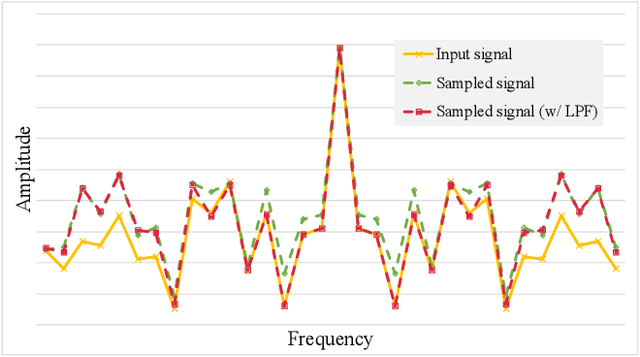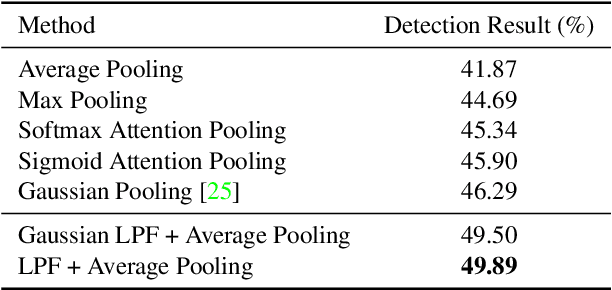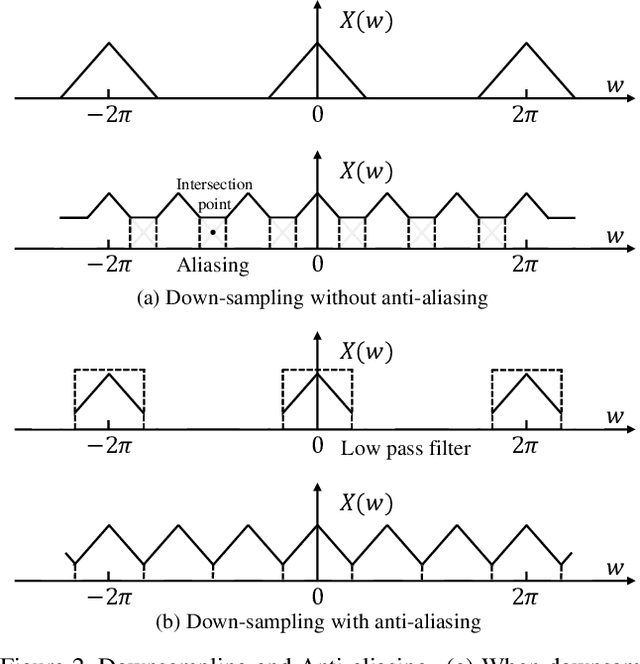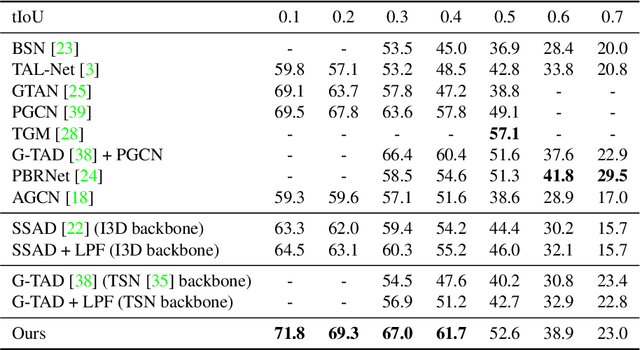Low Pass Filter for Anti-aliasing in Temporal Action Localization
Paper and Code
Apr 23, 2021



In temporal action localization methods, temporal downsampling operations are widely used to extract proposal features, but they often lead to the aliasing problem, due to lacking consideration of sampling rates. This paper aims to verify the existence of aliasing in TAL methods and investigate utilizing low pass filters to solve this problem by inhibiting the high-frequency band. However, the high-frequency band usually contains large amounts of specific information, which is important for model inference. Therefore, it is necessary to make a tradeoff between anti-aliasing and reserving high-frequency information. To acquire optimal performance, this paper learns different cutoff frequencies for different instances dynamically. This design can be plugged into most existing temporal modeling programs requiring only one additional cutoff frequency parameter. Integrating low pass filters to the downsampling operations significantly improves the detection performance and achieves comparable results on THUMOS'14, ActivityNet~1.3, and Charades datasets. Experiments demonstrate that anti-aliasing with low pass filters in TAL is advantageous and efficient.
 Add to Chrome
Add to Chrome Add to Firefox
Add to Firefox Add to Edge
Add to Edge